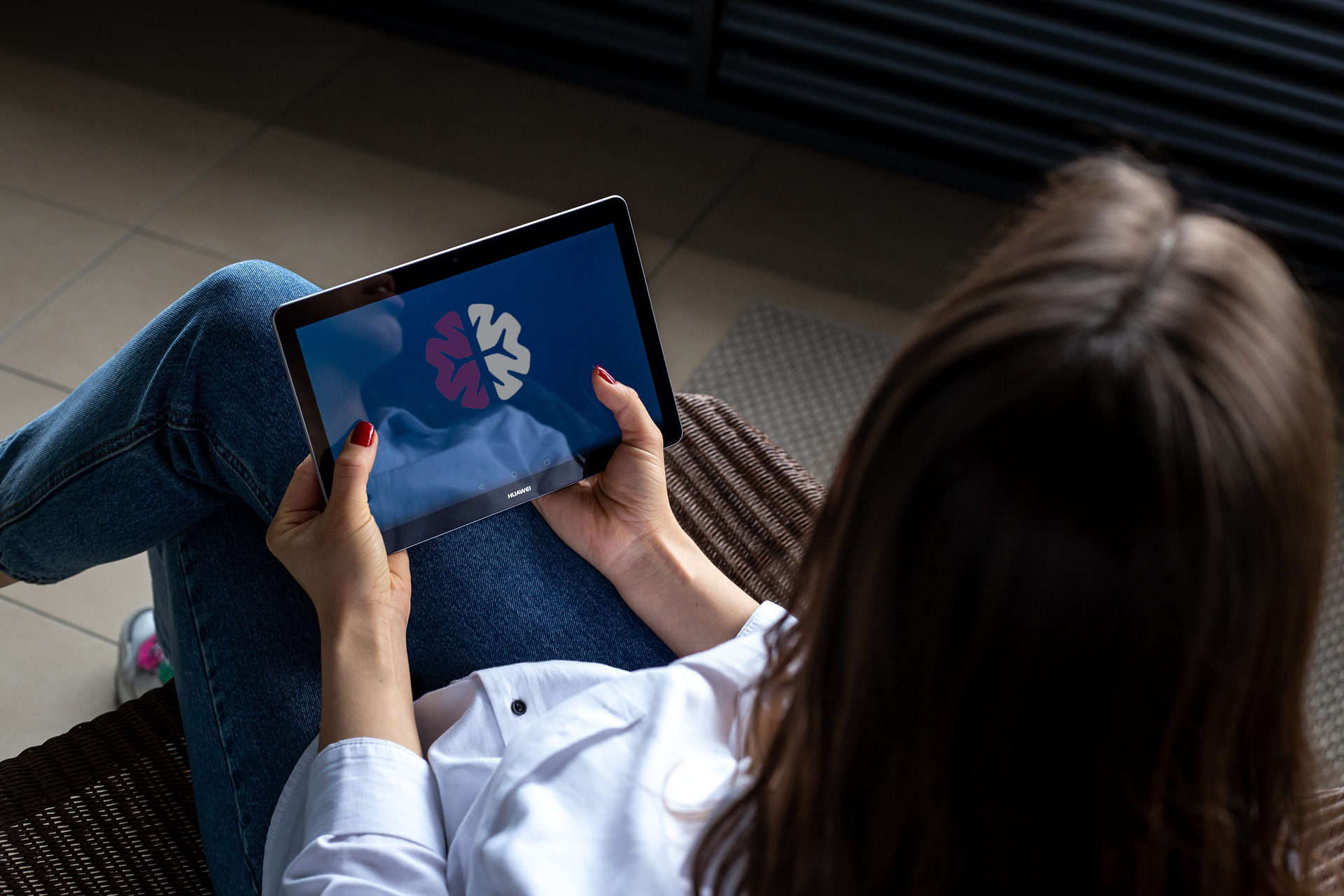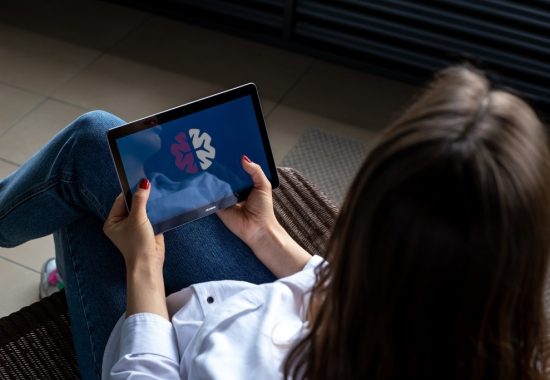
The critical need for options to deliver healthcare treatments remotely has been brought into the spotlight during the COVID-19 pandemic. COVID-19 has placed limitations and restrictions on the delivery of healthcare, making traditional in-person office visits more of a challenge. Even prior to the pandemic, brain injury rehabilitation providers had noted that transportation and financial barriers limit access to in-person treatment.
MossRehab has partnered with the Brain Injury Association of Pennsylvania (BIAPA) and other local rehabilitation providers to conduct a pilot demonstration study of remote delivery of cognitive rehabilitation for persons with traumatic brain injury (TBI), funded by the Pennsylvania Department of Health. Telehealth solutions for cognitive rehabilitation (telerehab) may be more effective and efficient than in-person services alone. The ability to deliver treatment to individuals in their homes could reduce missed appointments, while increasing access to services and allowing therapists to work with patients in their home environments.
After a moderate to severe TBI, many people have difficulties with everyday thinking skills. Cognitive Rehabilitation therapy is a broad term describing treatments that address these issues. Therapists must take into account each patients’ unique situation—their cognitive strengths and difficulties, the demands of their every-day lives, and the resources and supports available to them in their home environments. Given the wide range of problems and needs of individuals with brain injury, therapy varies from person to person. Although cognitive rehabilitation may include elements that target restoration of cognitive skills, for patients with brain injury, treatments that focus on compensating for cognitive deficits have a greater positive impact on real world functioning. Compensatory therapies focus on training strategies to overcome specific problem areas, often using external aides like smart phone applications, memory notebooks, and family calendars.
There are a number of challenges to providing cognitive rehabilitation via telehealth. Not all patients have access to high-speed internet and adequate hardware, that is, a computer or tablet with video capability. In the pilot demonstration project, a program evaluation team is tracking what patients already have access to and providing hardware and internet to those who need it. They are also providing staff and patients with an initial training session and ongoing technical support. Estimating the time and effort required for training and support will be important for evaluating the feasibility and sustainability of offering telerehab services beyond the scope of the current program.
This demonstration study is enrolling patients who are receiving cognitive rehabilitation and brain injury counseling supported by the Pennsylvania Department of Health’s Head Injury Program (HIP). Just as they do in usual practice, therapists work with individual patients to develop treatment plans around their goals. For the duration of their participation, patients are provided with iPads and high-speed internet to take part in HIPPA-compliant video conferencing. Patients enrolled in the program participate for at least six months, and as long as the remaining duration of their HIP-supported benefit for cognitive rehabilitation and brain injury counseling.
The therapists participating in the program have been holding video conference sessions with patients since March of 2020 and have noted many benefits of telerehab. Amanda Johnson is a therapist at MossRehab’s Drucker Brain Injury Center at Elkins Park. She described how video conferencing has allowed her to help patients improve their organization skills within their home environments, adding that some patients are more comfortable with video conferencing than home visits. Being able to view the patient’s home environment unlocks new opportunities for treatment. For example, Ms. Johnson was able to see the ingredients and kitchen equipment in a patient’s kitchen, which was useful in coaching them through meal planning and preparation. An added benefit that Ms. Johnson has noticed is that patients’ experiences with the iPad and video conferencing software have helped some become more comfortable with technology.
Amanda Rabinowitz, PhD, institute scientist at Moss Rehabilitation Research Institute (MRRI) and director of the Brain Injury Neuropsychology Laboratory, is leading the program evaluation team, which will evaluate feasibility and user-satisfaction with services delivered over the telehealth platform. The team is looking at several different factors related to how practical and desirable telerehab may be for patients with brain injury. One of these factors is the financial cost and technological support needed to get patients set up to use the video conferencing. Treatment providers are monitoring attendance at appointments throughout the duration of treatment, keeping track of any barriers to treatment encountered along the way. At the conclusion of the study, both patients and therapists will report on the usability of the video conference platform and their satisfaction with the experience. Both patients and providers are surveyed on the potential benefits and any potential disadvantages of holding cognitive rehabilitation visits remotely through video conference.
Eliminating the logistical challenges of transportation to and from the clinic could improve attendance. The team is interested in learning whether telerehab sessions are better attended and more easily rescheduled than in-person sessions. The team will also be investigating how clinicians make use of the opportunity to provide therapy for patients within their home environment. Do therapists involve family members, calendars, and other elements of the home environment to do real-time strategy development, for example, for the management of mail or the payment of bills?
Researchers and clinicians involved in this demonstration study were pleased to discover that patients were highly interested in participating. The team closed enrollment in January 2021 with 28 active participants, and this was considerably more than their target enrollment of 20 participants. The study will conclude at the end of May 2021, and we look forward to using these results to help us continue to develop new and innovative treatments at MossRehab.


One comment on “Researching the Remote Delivery of Cognitive Rehabilitation for Traumatic Brain Injury”